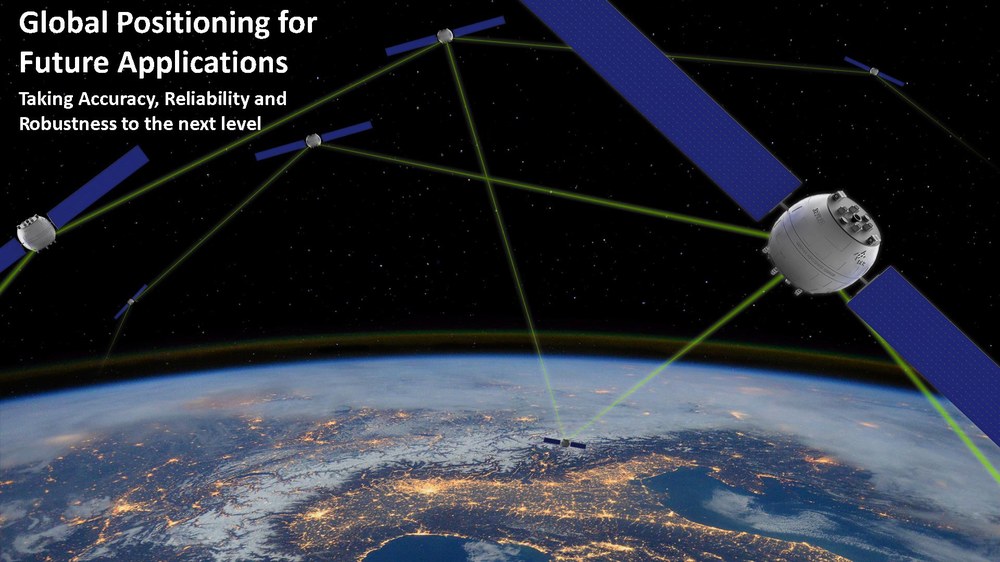GAUSS
It is hard to imagine everyday life without global navigation satellite systems (GNSS), such as GPS and Galileo, as the applications of positioning, navigation and time (PNT) determination are a natural part of our mobile devices: GNSS enables precise and convenient orientation worldwide.
However, GNSS play a decisive and thus necessary role in so-called safety-of-life services -- applications for prevention of potential hazards to human life – as required, for example, in civil aviation. Therefore, the use of GNSS in this field already requires a high level of integrity, in the sense of "[...] the ability to provide timely warning to the user when the system cannot be trusted " (GNSS Science Support Centre, 2011).
The potential of GNSS is thus far from exhausted: with regard to future developments in urban airspace, for example air cabs, the level of precision will have to be seriously increased in order to ultimately avoid any kind of collisions and accidents. This includes both static (buildings, bridges, antennas, etc.) and variable infrastructure (construction cranes, venues, etc.) in urban surroundings. For these reasons, GAUSS aims to create an integrity system based on small satellites operating in low earth orbit (LEO), especially for GPS and Galileo signals.
Aims of GAUSS
GAUSS consist of two different main tasks:
- Developing a global integrity concept based on small satellites in LEO
(Low Earth Orbit) - Preparing and executing an in-orbit demonstration of the integrity concept
Electric flying contribution
The urgency of relieving urban (ground) traffic requires sustainable development of the associated airspace. Electric flying is particularly suitable for this purpose, as it is exceptionally resource-efficient and reduces noise.
Flying vehicles of the near future can be divided into three major categories that can operate very efficiently in urban traffic:
Name | Examples |
|---|---|
UAV (Unmanned Aerial Vehicles) | Unmanned transport aircraft/drones for transporting goods and people |
UAM (Urban Air Mobility) | Urban transport aircraft for transporting people (air cabs) |
UAS (Unmanned Aerial Systems) | Networks/systems of unmanned transport aircraft/drones |
All these concepts rely heavily on positioning and navigation solutions based on GNSS (Global Navigation Satellite Systems), because safety for people and the environment has the highest priority!
Currently, there is an urgent need for research in this area, as existing systems (especially GPS and Galileo) do not achieve the desired high level of integrity and accordingly cannot guarantee the achievement of the demanding requirements on positioning systems for urban air mobility. In order to enable the planned changes with respect to electric flying, the GAUSS (GNSS Augmentation Satellite System) project aims at developing a new global concept to guarantee the integrity of GPS and Galileo using small satellites in low earth orbit.
Reference:
GNSS Science Support Centre. (2011). Integrity. NAVIPEDIA (European Space Agency), [This definition was adapted from the 2008 US Federal Radionavigation Plan]. 13.02.2023, https://gssc.esa.int/navipedia/index.php/Integrity#cite_note-2.
Project data | |
|---|---|
Term | 3 years |
Participating Institutes |
|

